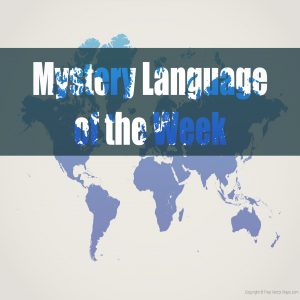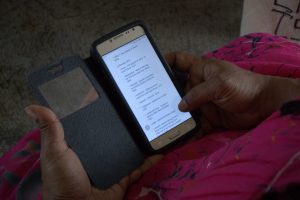By Jodie Kell
 Each week of this year PARADISEC is broadcasting a Mystery Language of the Week. Published on our website through a popular audio platform, as well as through social media, we are asking people for help in identifying languages in our archive by listening to short audio grabs and contributing their knowledge to the descriptive metadata.
Each week of this year PARADISEC is broadcasting a Mystery Language of the Week. Published on our website through a popular audio platform, as well as through social media, we are asking people for help in identifying languages in our archive by listening to short audio grabs and contributing their knowledge to the descriptive metadata.
2019 is the UNESCO International Year of Indigenous Languages (IYIL). The Permanent Forum on Indigenous Issues said that 40% of the estimated 6700 languages spoken around the world were endangered, and most of these are Indigenous languages. This puts the associated cultures and knowledge systems at risk, since Indigenous languages “represent complex systems of knowledge and communication and should be recognised as a strategic national resource for development, peace building and reconciliation.” (https://en.iyil2019.org/about/#about-1)
One of the aims of the year is to mobilise and connect different organisations, communities and individuals for coordinated action on the “urgent need to preserve, revitalize and promote indigenous languages around the world” (https://en.unesco.org/news/unesco-launches-website-international-year-indigenous-languages-iyil2019). The IYIL website contributes to raising awareness about issues surrounding Indigenous languages by providing information, including a calendar of events and access to resources, and enabling organisations to register and actively participate. (https://en.iyil2019.org/) PARADISEC has registered and is planning a series of activities to support the IYIL and use the coordinated approach promoted on the website to expand the reach of our archival materials and our organisation.
Read more
 Follow
Follow

